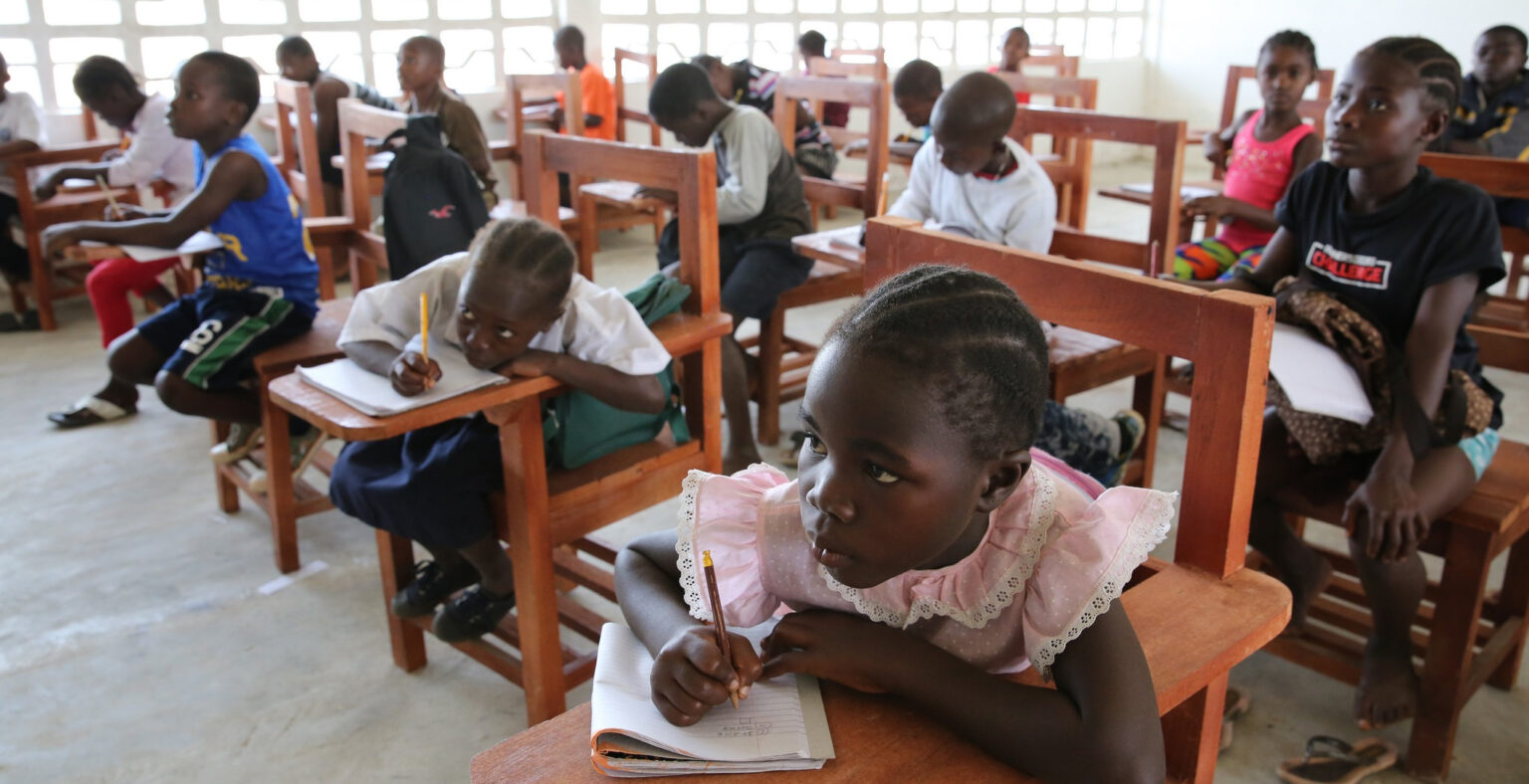- Learning poverty is costing African young learners dearly
- Median international school fees in Africa span from US$4000 to US$10000 in Africa
- Free education in Africa is now available across most countries.
Education is the most valuable investment any country can have, but the COVID-19 pandemic places this priceless activity in a rather unprecedented position, threatening the fate of the next generation.
Various numbers and figures make the latter clearer. According to International Schools Database, Median international school fees in Africa span from US00 to US,000 in Africa. (https://artandhistory.org/) According to a 2020 based study on 14 countries, the average spending mark on education in Africa was 4.77 per cent.
Out of 53 countries, at least more than 40 provide free education to children in Africa. These numbers are a glimpse of how education is crucial to developing economies, Africa to be specific.
Read: World Bank invests in East Africa’s vocational education
The sad part is the joy of learning might be at risk as this generation of students (worldwide) now risks losing US$17 trillion in lifetime earnings in present value, or about 14 per cent of today’s global GDP as a result of the pandemic related school closures, according to the December 6, 2021, report by the World Bank.
In 2020 the World Bank noted highlighted the potential long-term social and economic impact of shutdowns in Sub-Saharan Africa that would result in lifetime earning losses of US$4,500 per child.
The report titled, The State of the Global Education Crisis: A Path to Recovery, portrayed the latter as a concern that low- and middle-income countries ought to heed.
Read: Mastercard in Africa signs top universities to launch educational platform for SMEs
“The share of children learning poverty already 53 per cent before the pandemic—could potentially reach 70 per cent given the long school closures and the ineffectiveness of remote learning to ensure full learning continuity during school closures”, the World Bank report noted.
This reality hits developing economies, which are currently revamping their economies unevenly from the vast shocks of the pandemic.
As vaccinations roll out in Africa, getting to more than 11.69 per cent of Africans (Africa CDC), still there is more to be to restore Africa’s velocity towards excellence as before – and such education risks mar undergoing efforts to curb learning poverty—which existed before the pandemic.
The undertone of COVID hurting the development process of developing nations is undeniable. However, it is also essential to analyze this undertone and its implication on regions that might suffer heavily in the long run – Africa, for instance.
With seven out of ten countries facing an acute shortage of teachers across the region, 9 million girls between the ages of about 6 and 11 will never go to school at all, compared to 6 million boys according to UNESCO.
The World Bank report argued that simulation estimating that school closures resulted in significant learning losses are supported by accurate data.
The bank data point out that, in the region, nearly 87 per cent of children are considered learning poor, and the rate is 90 per cent across all low-income.
The fate of learning in Africa
1.6 billion children were disrupted from their learning process worldwide, more than 32 million children were missing out on the fun in schoolyards in Eastern and Southern Africa (UNICEF).
With the present technological limitations hinged across counties in Africa, it is nearly impossible for most learners to keep up with the rest of the world.
“Lack of access to radios, television, computers, internet and data left many students unable to engage in remote learning” Human Rights Watch.
As African governments battle recession risks, inflation, unemployment and political instability, education poverty is probably the worst thing to happen to any continent.
There are many things to take care of within the realms of education in Africa, especially in primary and secondary levels, school fees being one of the top three.
Since the 1980s, school fees have been demanded by public and private learning institutions. Still, countries have been implementing policies and schemes to ease the pain for parents aspiring to educate their children over the past decades.
Consequently, the latter has yielded promising results for communities as enrollment rates have risen, bringing millions to access education services. On the other hand, free education causes a funding imbalance for schools relying on fees to operate, which has been reported in Kenya and Tanzania, which have been adamant in this.
Regardless of the above, transport to school, meals services, attire, books and in-school infrastructures and supplies are chronic demands that make learning a challenge for the region. The present learning poverty undertone brought by the pandemic puts countless efforts waged on education at risk.
The bank’s report noted that by December 2021, less than 3 per cent of the government’s stimulus packages were allocated to education. The learning sector is battling for finances with the most demanding sectors in the region, such as health and agriculture.
However, there are ways to curb the challenges waged by the pandemic by building more resilient education systems for the long term for countries to consider.
Through investing in the enabling environment to unlock the potential of digital learning opportunities for all students, the world’s youngest minds are secured (World Bank).
Reinforcing the role of parents, families, and communities in children’s learning, ensuring teachers have support and access to high-quality professional development opportunities, increasing the share of education in the national budget allocation of stimulus packages (WB).
In a nutshell, learning recovery post-pandemic must be a priority for African governments.
Read: Uganda’s poverty level by 2030 – study
